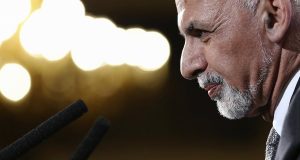Five hundred years ago Machiavelli wrote: “A ruler must not worry about being labelled cruel when it’s a question of keeping subjects loyal and united. It is better to be feared than loved, for we can say of most people that they are ungrateful, unreliable, they lie, they fake, they are greedy. The ruler who has relied on promises is lost: since men are a sad lot, gratitude is forgotten the moment it is inconvenient.”
The book, written in 1513, shocking in its day, was banned by the Pope. Its contents were considered blatantly opposed to Christian values and ethics. Furthermore, one of the primary tenets of the Christian faith; accountability and eternal fate decided on the last day of judgement, was completely disregarded. Moreover, Machiavelli’s The Prince is preoccupied with political theory, state leadership, warfare, strategic military manoeuvrings and cunning tactics: a guide book and advice for political leaders, its fundamental theme revolves around how to gain power, and how to hold onto power once you’ve attained it.
Apart from exposing the dark side of human nature, The Prince (principalities) has become one of the most influential and important books ever written on political theory. In essence, its core teachings are clearly visible and administered in effect in the contemporary global political arena. The favourite bedside reading of Napoleon, Stalin, Henry Kissinger and Richard Nixon, (Mussolini wrote his thesis on the book), it could be said that Machiavelli was ahead of his time. In light of current world superpowers efforts to gain hegemonic control of territory through interference and occupation, Machiavelli’s advice and concepts appear visionary. For instance, he states: “A ruler who has moved into a new region must make himself leader and protector of weaker neighbouring powers, while concurrently undermining stronger powers. With his own strength and support of weaker neighbouring states, he can undermine powerful neighbours and dominate the region.”
To understand why Machiavelli wrote this book, a brief historical contextual overview is required. Machiavelli was born in Florence in 1469. In the 13th century, Florentines had overthrown noble families who ran the city and instead introduced an exemplary idealistic republican constitution. By the 15th century, Florence had in fact come close to resembling a dictatorship. Italy was divided into numerous rival states. The political geography was ever changing as the various states were rarely secure and under constant threat of invasion. Florence, being the weaker, smallest state had been ruled by the friar and self proclaimed prophet of God, Girolamo Savonarola from 1494-98. His puritanical campaign and severe rule led to loss of public support and a conviction of heresy by the church of Rome, resulting in his death by burning at the stake.
Shortly after this episode, Machiavelli appears on the political scene. It is unclear what professional qualifications or skills Machiavelli possessed, nevertheless, by the age of 28, he landed a position as secretary of two state departments in Florence, along with the position as secretary of the ‘Ten of War’ committee which dealt with foreign relations and war preparations. For the following 14 years, he worked as a diplomat which required negotiating with the various heads of states in Italy. Heavily involved in the military campaign to regain Pisa, its commercial and strategic value was inestimable as it connected Florence to the sea. Machiavelli’s diplomatic career as negotiator thus lent him insight into the multifarious, erratic nature of political affairs along with a direct observation of the often volatile, whimsical nature of political leaders. However, due to a change of government, his prestigious, influential post came to an end.[1] Dismissed on charges of conspiring against the new regime in Florence, he was imprisoned and tortured but eventually released without charge. Nonetheless, he remained on the watch list. Banished from Florence, he moved to a farmhouse in the country, practically living under house arrest. It was from here that he began writing what was to become the infamous work The Prince (Machiavelli’s original copy was untitled). The book was dedicated to the new Medici ruler of Florence in an effort to demonstrate his knowledge of the secrets to gaining power, and possibly to influence the new ruler into giving him his job back! However, it is widely thought that Lorenzo De’ Medici never even opened the book. Machiavelli died in 1527. The book was not published in his lifetime.
Perhaps it was a case of bitterness or even desperation that drove Machiavelli to putting pen to paper in disclosing what would be considered by today’s standards the equivalent of a wikileaks publication of classified information. Machiavelli’s uncanny politically astute, awareness and cunning seemed to be something he took pride in, as he certainly didn’t shy away from sharing his perceived sinister, secret knowledge and advice, or perhaps he simply thought he had nothing to lose. Either way, his book seemed to be an attempt to gain favour if not win back his prestigious position as a diplomat. Although his personal and professional reputation had become severely damaged, in his writings he seems to take this notion with a pinch of salt as he states: “Regarding failure, a leader need not worry about that. He mustn’t be concerned about the bad reputation that comes with negative qualities that are essential if he is to hold onto power.” Equally revealing is Machiavelli’s attitude to state expenditure where he writes: “When the money is your own or that of your subjects, you should be frugal, but when it’s someone else’s money, you should be as lavish as possible!”
On the topic of rulers keeping their word, a concept that may induce many of us sceptics to roll our eyes towards the heavens, Machiavelli clearly identifies this common trait among politicians when he states: “We have had examples of leaders who have done great things without worrying too much about keeping their word. Outwitting opponents with their cunning, these men achieved more than leaders who behaved honestly. A sensible leader cannot and must not keep his word, if by doing so puts himself at risk. Since men are a sad lot and won’t keep their promises to you, you hardly need to keep your promises to them. A good leader will never be short of reasons to explain away a broken promise. You have to know how to pretend one thing and cover up another.”
Machiavelli didn’t seem to hold much faith in political astuteness among the public, rather he suggests that citizens can be easily fooled by appearances. He recounts: “A leader doesn’t have to possess virtuous qualities but it’s absolutely imperative that he ‘seems’ to possess them. There is nothing more important than appearing to be religious, as people judge more by appearances.”
In light of the current global political chaos, wars, confusion and constant ally interchanging, Machiavelli’s conclusions and advice on these topics seem to be mobilising before our very eyes. The following statement may ring a bell, if not send a chill down one’s spine as he recounts: “A ruler must guard against two types of danger: one eternal coming from his own people and one external coming from foreign powers. You need a good army and good allies. To hold power, some rulers disarm their citizens, some keep towns divided into factions, some encourage hostilities towards themselves, others seek to win over those who were initially suspicious of their rise to power. Nothing wins a ruler respect like great military victories and a display of remarkable personal qualities.” He furthermore goes on to state: “A ruler must never ally himself with someone more powerful in order to attack his enemies because when you win, you will be at the mercy of that ally.”
Machiavelli was and to some extent is still considered evil, cunning, opportunistic and unprincipled. Yet he clearly understood the nefarious side of human nature and the often underhanded, yet what he deemed essential qualities, strategies and tools necessary for state leaders to gain power and hold onto it. In his honest, realistic and pragmatic approach, his ‘principalities’ personify and reflect contemporary political landscape. Considering the current state of world affairs, skulduggery and devious manoeuvrings of world leaders and superpowers, one could say that Machiavelli predicted the future. The Prince may remain essentially a guidebook for political leaders yet if we look closely we may observe there are many ‘Machiavellian’ leaders around us today.
[1] Niccolo Machiavelli. The Prince, Translated and Introduced by Tim Parks, Penguin Classics, 2009, p.ix-xvii.
Writer: Angelina Merisi
The writer hails from Ireland. She is part of the Pashtuns Times News Network. She is a PhD scholar at the University College Cork, Ireland. Her current research is focused on Islam and Pashtun male migrants in Ireland, masculinity and honour concepts. She can be reached at
merisi3331@gmail.com
THE PASHTUNS TIMES
 Pashtun Times Latest News
Pashtun Times Latest News





